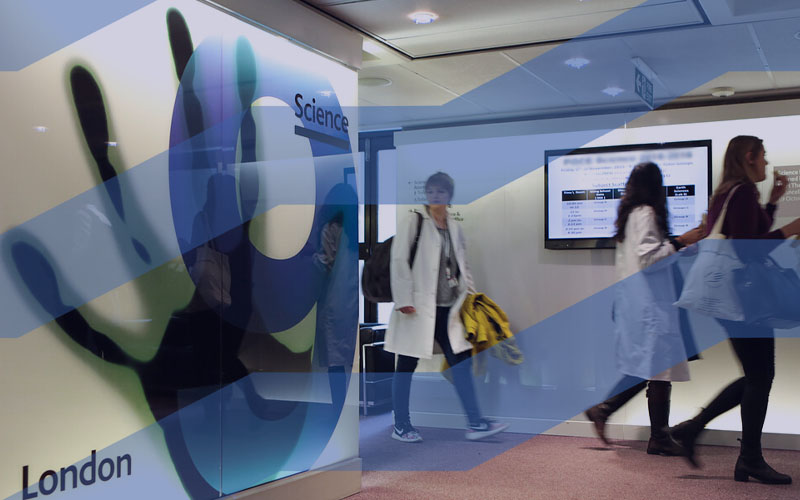This is what it’s really like to train with the best in the world
London Teacher of the Year, Abbie Sedgeman, spills the beans on training with the IOE Teacher Education College.

10 December 2021
The IOE approach is to get you into the classroom very early. You do two weeks on campus and then by week three you’re in your first placement. That's just to get the feel of the school. After October half-term you go back into school for five to six weeks, starting to work with little groups, really getting immersed in that classroom experience.
It seems intense from the outside but your personal tutor at the IOE, working with your school-based mentor, adapts the placement to suit the way you need to learn. I'm someone that moves quite quickly and so when I was observed doing group work, they noticed that actually it might be time to move me on to whole classes. So in that first placement, where I was meant to be doing just little group work, I started team teaching, where you work alongside the teacher you're based with, as well as teaching a whole class for little snippets. If I had been struggling though, I’m sure they would have slowed it down for me.
I wanted to be a primary teacher because of the breadth of material that you’re teaching. But because I’ve always enjoyed maths, I decided to follow the IOE’s maths pathway. It allowed me to be in a position to appreciate, on a deeper level, how maths is understood and how children access numbers.
I’ve found it allows me to be a lot more adaptable and responsive in the classroom. Because I have this confidence in my understanding, if I have a child in my class struggling with something like dyscalculia, I would be able to come up with strategies to help them straight away, rather than going off to do research and taking several weeks before being able to start supporting them effectively. I would never even heard about dyscalculia if I hadn't learned about it through the maths pathway at IOE.
In addition to my two main placements, in Year 6 and Year 1, I was lucky that I was able to spend a week in a pupil referral unit (PRU) and a week in a secondary school. In a particularly challenging turn of events I taught a maths lesson to a Year 8 class! As soon as you start teaching, however, you fall into the rhythm of it and, in the end, it was really beneficial because it gave me a sense of what I have to do to get my kids ready for that.
The PRU is something that I still think about now and I definitely want to end up going back to one when I have further developed my teaching and behaviour management. It's so hard seeing primary school children that have been excluded. I would love to be part of getting them back into mainstream schooling.
“The IOE’s open-minded approach to pedagogy has had a huge influence on me. By exploring a broad spectrum of pedagogical research, I’ve been able to identify my passions. At the IOE, through researching the impacts of attainment-based groups, I looked into the ways that I can support children that are lower attaining in certain subjects, are struggling or who have special educational needs. I still call on these learnings now: I'll be spending the next couple of months at my school exploring how to support ADHD better in a primary classroom environment.
A key message I took from the pedagogical focus at the IOE was the need to think critically. Teaching is not about taking one strand of understanding and doing that for 20 years. It's about reading different resources, adapting to different ideas and recognising that not every strategy you read about is going to work for each child. It gives you a much wider understanding of the way children learn.
Abbie is a primary school teacher in Tower Hamlets, London and winner of a London Teacher of the Year award during her NQT year.
 Close
Close


